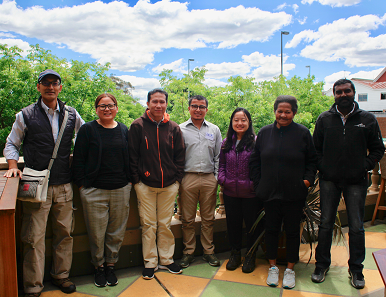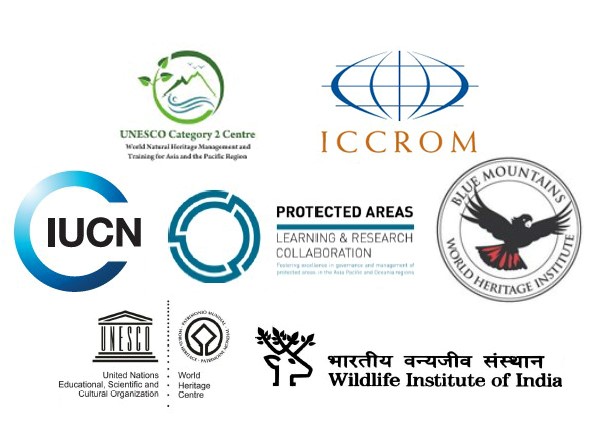
Participants from the Asia-Pacific region attended the Adaptive Management training for Protected Areas in the Blue Mountains in November 2018. Photo by Blue Mountains World Heritage Institute.
Story by Rosalie Chapple, Blue Mountains World Heritage Institute
At an adaptive management training in November 2018, nineteen participants from Australia, Bhutan, India, Indonesia, Myanmar, and Papua New Guinea strengthened their capacities to manage natural and cultural heritage, particularly in the context of protected areas in the Asia-Pacific region.
The Blue Mountains World Heritage Institute (BMWHI) and the International Centre for the Study of the Preservation and Restoration of Cultural Property (ICCROM) hosted the training in the Greater Blue Mountains World Heritage Area (Australia). The training was held within the framework of the ICCROM-IUCN World Heritage Leadership Programme and in partnership with the Wildlife Institute of India, a UNESCO Category 2 training centre.Participant assistance was provided by the Protected Areas Learning and Research Collaboration (PALRC) and ICCROM. This training programme is part of a long-term capacity building strategy that is being developed by PALRC in partnership with the BMWHI to meet the need for leadership, knowledge, innovation, and practical skills among the conservation sector in Australia and the Asia-Pacific region.
New approaches to management, education, and capacity building are needed to better equip managers and practitioners to address today’s environmental and social challenges. Training in adaptive management can build capacity to not only adapt to change, but also to shape and create change. Adaptive challenges are individual and collective as well as technical. While adaptive management calls for implementation of strategies and measures that address the technical aspects of problems, it also calls for us, individually and collectively, to be able to evolve along with the heritage that we are caring for. This can challenge assumptions and question underlying beliefs about what is taking place in the natural and cultural environment.
The November training programme exposed participants to aspects of the inclusiveness, discrimination, openness, and reflexivity needed to manage change processes and guide justifiable, appropriate, and effective action. From the ICCROM, participants learned about the fundamental importance of nature-culture connections and global efforts to integrate natural and cultural heritage management. With the help of heritage experts and local guides, participants were able to explore the multiple deep, diverse cultural associations of the Blue Mountains.
CCNet coaches Philippa Walsh (Community Solutions) and Stuart Cowell (Conservation Management) introduced participants to adaptive management tools based on the internationally recognised Open Standards for the Practice of Conservation (OS). The Greater Blue Mountains World Heritage Area provided a case study. The OS tools help people systematically plan, implement, and monitor their conservation initiatives. The OS framework assists decision-making about complex issues and can be applied to a wide range of cultures and situations at any scale. By the end of the training, participants were familiar with how to design and implement a monitoring program and integrate data into a decision-making framework for adaptive management.
Throughout the training, participants worked in small groups to progress through an adaptive planning, monitoring, and management loop. Each group focused on one of four themes (people and culture, flora and fauna, fire, or water). For example, the people and culture group focused on Indigenous and European cultural heritage and tourism management. They dissected management issues to reveal underlying problems and find ways of working with complex and seemingly intractable issues such as climate change. Heritage management issues were always considered through the lens of nature-culture connectivity.
To enable and assist long-term engagement, participants have been invited to submit a progress report in six months (mid-2019) to report how they have implemented what they learned to their own work situations. These reports will be incorporated into a database of case studies on adaptive management and will contribute to the ongoing analysis of the impact of training programmes. In addition, an online portal for course alumni is being developed so that participants can continue to engage with a network of peers who are applying this adaptive management framework and seek support and mentoring as needed.
Acknowledging the Dharug, Gundungurra, Wanaruah, Wiradjuri, Darkinjung, and Tharawal language groups as the
traditional owners of the Greater Blue Mountains World Heritage Area
